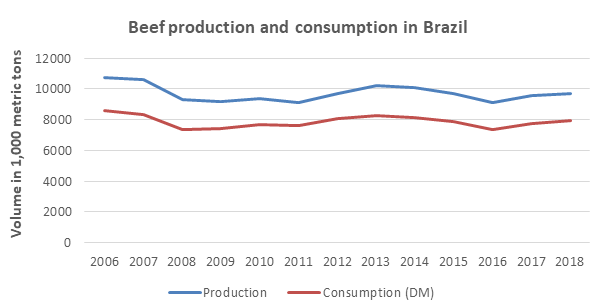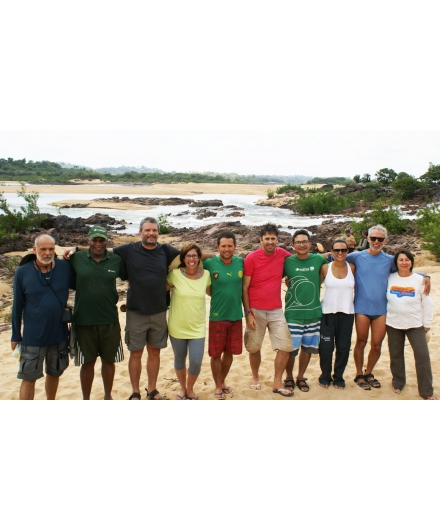André Vasconcelos and Ciniro Costa Junior
If the Brazilian cattle sector was a country, it would
rank 16th in a league table of countries with the highest greenhouse gas
emissions (ghg). A new report from Imaflora and Observatório do Clima has
highlighted why urgent action is needed to reduce the impacts of these emission
from beef and dairy production.
This report shows that in 2016 cattle rearing accounted
17% of Brazil’s carbon dioxide emissions (CO2) amounting to 392 million tons
(Mt) of ghg released into the atmosphere.
This one sector was responsible for 70% of all the emissions from
agriculture in the country.
This does not include indirect emissions from land-use
change (native vegetation conversion). If this is considered the scenario is
even more dramatic.
Carbon emissions from land-use change from forest to
agriculture amounted to 1200 Mt of carbon dioxide equivalent (CO2e) in 2016.
This is more than double the carbon emissions from agricultural activities
alone (499 Mt CO2e).
Status of the sector
Brazil is one of the largest beef producers in the world
and the third biggest consumer of beef behind the United States of America (US)
and China. In 2016, the consumption per capita reached almost 36kg. There are
more cattle in Brazil than people, with over 220 million animals.
Most of the beef produced in Brazil is consumed within
the domestic market. Since 2006 the domestic consumption has been reasonably
steady, at around 80% of all the beef produced.
What's the beef? Brazil's climate emissions
28/06/2018
But the industry has been performing poorly in terms of tackling its sustainability issues. Only 17% of the beef or leather companies assessed by Forest 500 (the most influential global companies and financial institutions in forest risk commodity supply chains) have policies to protect forests in their operations or supply chains. This means that the majority of these companies have not even published a plan to take action, let alone implemented it.
In the Brazilian market, half of the active meat-packing plants in the Amazon region, which represent 70% of the slaughter capacity, have signed Conduct Adjustment Terms (TAC) with the Brazilian Federal Prosecution Agency committing to not purchase cattle from areas deforested after 2009. But problems remain. Cattle laundering and the complexity of the supply chain mean that these agreements are not fully effective.
Both the private sector and the government have a key role in shifting cattle production and consumption to a more sustainable model. For example, the government must improve enforcement and put mechanisms in place to enhance monitoring and traceability. Within the domestic market there is also a need for retailers and traders to improve their actions in reducing deforestation within their supply chains.
Reasons for hope
According to a study by IMAFLORA, which looked at the carbon outcomes of the Novo Campo Programme for some beef cattle farms in the Amazon, cattle productivity is estimated to have doubled and ghg emissions were reduced by 20% per hectare and 60% per kg of beef carcass over the two years after the adoption of best management practices.
These emission reductions were based on recovering degraded pastures and implementing better animal management, such as rotational grazing and feed supplements. More productive pastures provide better quality animal feed. The changes also helped the soil to lock away more carbon.
It is estimated that Brazil has nearly 50 million hectares of degraded pasture lands (equivalent to a country the size of Spain). Recovering these lands is an important step to avoid further native vegetation clearance for agriculture while meeting future food demand.
André Vasconcelos is a Latin America Researcher at Global Canopy.
Ciniro Costa Junior is a Researcher on Climate and Agricultural Supply Chains at Imaflora.

Confira também
Armazéns da Cooxupé são verificados pelo Imaflora e podem comercializar cafés Rainforest Alliance Certified.
14/03/2011

Experiências e vivências da equipe e conselho do Imaflora, uma literal imersão no Xingu
29/09/2015
Estudo aponta que principais órgãos ambientais do governo não cumprem na íntegra legislação de transparência de dados
26/07/2019
Emissões do Brasil caem 2,3% em 2017
21/11/2018